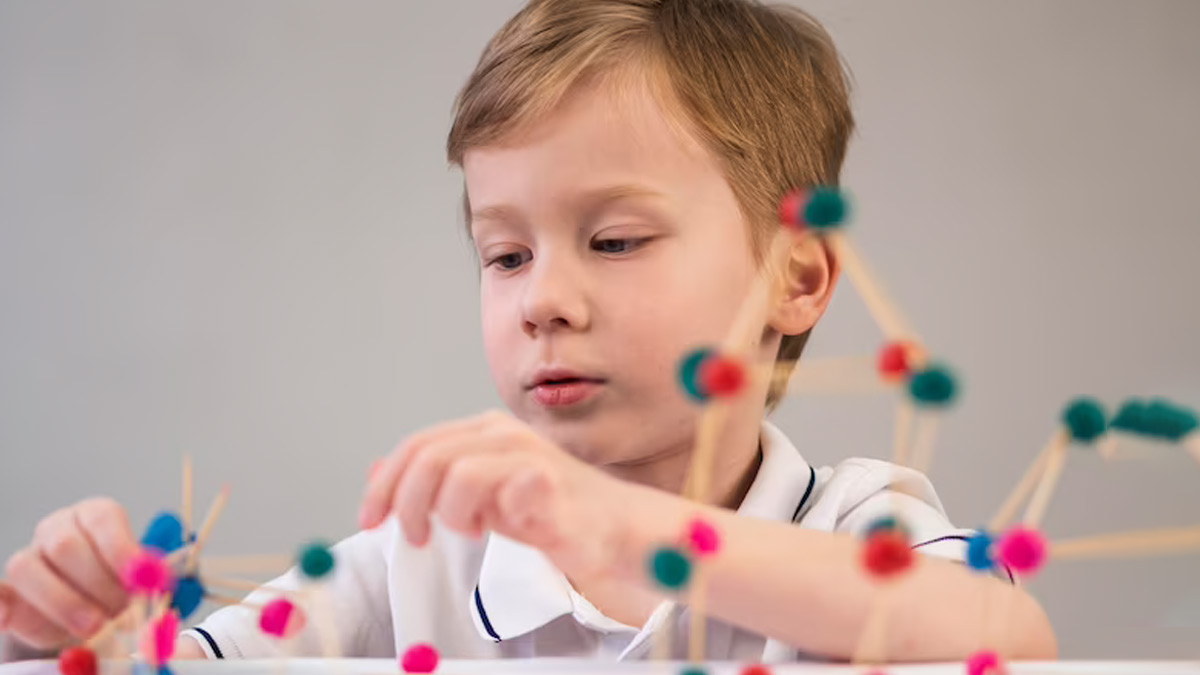
Autism is a condition that affects the development of the brain, and it is quite common - about one in 59 kids is thought to have it. It can happen because of changes in the genes passed down from parents or because of changes that occur by chance. We've learned a lot about the genes involved in autism over the past decade, and we know that hundreds of different genes can play a role. But even if people have the same gene changes, they might not have the same symptoms, which can make it hard to diagnose. Only about 10 to 20% of cases are caused by changes in specific genes, said Dr Sindhura Munukuntla, Consultant Paediatrician, Yashoda Hospitals, Hyderabad.
Table of Content:-
Genes Linked to Autism
According to her, it was believed that autism was caused by things in the environment. But after studying how genes affect our health, it became clear that genetics plays a big role in autism. Researchers have found that if someone had a family member with autism, they were more likely to have it too. Scientists have discovered hundreds of genes that are linked to autism, with most of them involved in making connections between brain cells or controlling how genes are used.

Also Read: A Special Needs Mom Shares How Quality Of Life In Children With Autism Can Be Improved
Disorders Connected to Autism
Fragile X and Rett syndromes are two disorders connected to autism that result from abnormalities in a single gene. Yet, only 1% of non-syndromic instances of autism are caused by gene abnormalities. There isn't now an "autism gene", which means that no gene consistently exhibits mutations in every person with autism. However, it doesn't appear that any gene consistently causes autism when it is mutated, she added.
Small Changes in Genes Linked to Autism
Autism can be caused by changes in genes, which can be as small as a single letter in the DNA code. These small changes are called single nucleotide polymorphisms, or SNPs, and if they are found in at least 1% of the population, they are considered common.
Contribution of Factors Other Than Genes
Not all cases can be attributed to genes. While experts disagree on how much genes and the environment contribute, it's clear that environmental factors also play a role. Factors like a mother's immune response during pregnancy or difficulties giving birth can combine with genetic factors to cause or worsen the condition.

Also Read: World Autism Awareness Day: Embracing Neurodiversity & Creating Inclusive Spaces
Searching for Mutations in the Remaining Genome
Yet, given that genes account for less than 2% of the genome, it is likely that not all autism-related mutations occur in genes. Researchers are exploring the rest 98% of the genome to find mutations related to autism. However, there is still much to learn about these regions.
Gender Differences in Autism
It appears that girls with autism have more mutations than boys. Moreover, some boys with autism receive their mutations from mothers who are not affected. Combined, these findings imply that girls may be more genetically vulnerable to the mutations that cause autism and may be more resistant to them, stated Dr Munukuntla.
Testing for Autism-Related Diseases
A developing baby's chromosomes are frequently screened by clinicians for significant chromosomal abnormalities. For some autism-related diseases, such as Fragile X syndrome, prenatal genetic testing is available. Therefore, it is impossible to predict with certainty whether a newborn who possesses these uncommon mutations will ultimately be diagnosed with autism.
Image Credits: freepik
Also watch this video
How we keep this article up to date:
We work with experts and keep a close eye on the latest in health and wellness. Whenever there is a new research or helpful information, we update our articles with accurate and useful advice.
Current Version